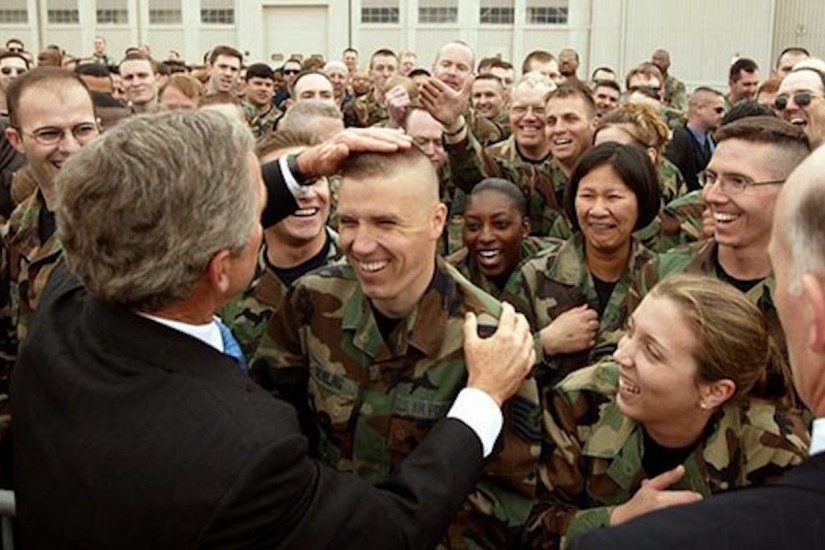During the Mexican war, the regular regiments fought hard and well, but the few rank-and-file men who wrote about their experiences did not list patriotism as an important motive. They said that they were motivated by professional pride and their love of their comrades. To their credit, they rarely committed crimes against Mexican civilians.
But the Mexican war would temporarily change the very nature of the American military. The U.S. regular Army was not large enough for the war against Mexico, so when Congress authorized military action it also authorized the government to raise thousands of men organized in volunteer regiments. These men were very different from the regular Army recruits.
As news of the first clashes along the Rio Grande swept through their towns and counties in 1846, thousands of young men listened to patriotic speeches and signed up for regiments from the various states. Their hometowns sent them off with music, speeches, and banquets. These men were wealthier than the regular soldiers, and they viewed their service as an expression of their patriotism and a chance for adventure. The volunteers saw themselves in many ways as the embodiment of Jacksonian democracy, which extended citizenship to all white males and invited them to pursue their dreams by dominating others, especially African Americans, Native Americans, and, now, Mexicans. The volunteers were, like the regulars, often militarily successful, but they had little else in common with them. Professionalism and discipline held little attraction for them, and they often committed crimes against Mexican civilians.
This divide between regulars and volunteers would prove to be a defining one. Regulars and volunteers were both necessary to American military success and suffered hardship, injury, and death. Those who survived often had traumatic memories of battle violence, or of the helplessness they felt as they watched friends die from illness. But regulars and volunteers had very different experiences at the end of the conflict.
When the war ended, the volunteers were greeted as returning heroes, with parades, speeches, barbecues, balls, and banquets. Their fellow Americans celebrated them as citizen-soldiers, the embodiment of American patriotism. Many settled down to start families, and hundreds soon wrote memoirs about their experiences in Mexico.
The regular soldiers were not feted. Most still had not completed their terms of service, and they moved quietly on to new military postings. One of them, Alonzo Sampson, wrote that “there were plenty of us who had no home, strictly speaking.” These men remained, in effect, rootless laborers employed by the government.
